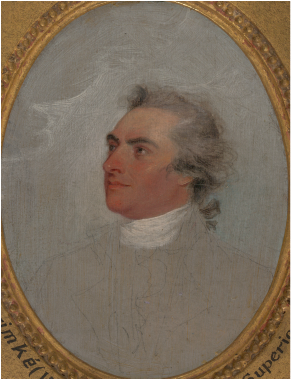A Charlestonian (South Carolina) by birth, John Faucheraud Grimke was an officer in the Revolution, and this was how he came to be painted by the young nation's leading portrait artist, John Trumbull, who painted a series of such portraits in the years following the war. By the end, Grimke was a colonel had been captured by the British during the Battle of Charleston, and had escaped. Twenty three years old when the war began and the son of a German immigrant, he was a proud member of the Revolutionary generation.


 RSS Feed
RSS Feed